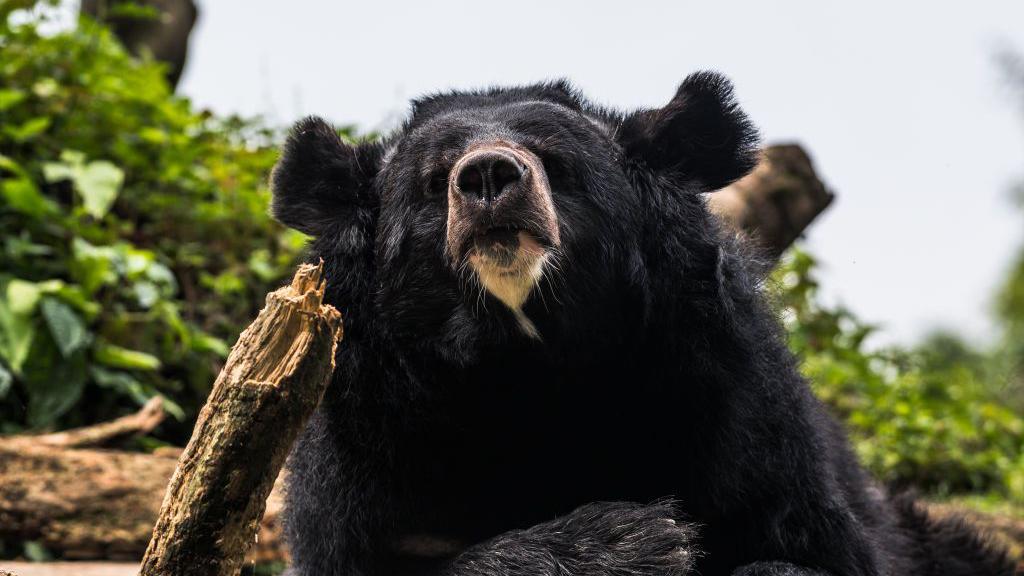Man killed in suspected bear attack in Japan

- Published
A 58-year-old man has been killed in a suspected bear attack in Japan.
Construction worker Yasuhiro Kobayashi was found in a forest in Nagano Prefecture on Friday afternoon.
He had large wounds on his head and back, a spokesperson from Nagano Central Police Station confirmed.
This is the latest incident in a surge of attacks by the animals, which are increasingly venturing into populated areas.
Mr Kobayashi was found by a colleague who went looking for him when he failed to return to work after visiting a construction site, Japanese broadcaster NHK reported.
According to newspaper Asahi Shimbun, four people were injured in bear attacks in Nagano this month.
Authorities in the prefecture have issued severe warnings to residents not to venture into the mountains at dawn or dusk when bears are most active.
Officials advised those visiting the mountains to travel in groups and carry something that makes a noise to scare them off, such as a bell or horn.
Bear sightings and incidents happen usually around April when they are awake from hibernation in search of food, and then again in September and October when the animals eat to store fat for the winter months.
However, reduced yields of acorns - the biggest food source for bears - has made their movements unpredictable.
- Published30 September 2023
- Published14 June 2016
In December, Japan's environment ministry revealed that six people were killed and 212 injured in bear attacks from April to November last year.
NHK reported that this surpassed a previous record of 158 bear attack injuries in the 12 months from April 2020.
In May, a panel appointed by the environment ministry suggested revising existing hunting laws to allow the use of guns - including tranquilizer guns - against bears that enter residential properties.
Under current regulations, guns can only be used on a bear in a residential property if ordered by police.
Japanese media has also reported that some municipalities are using Artificial Intelligence (AI) to deal with the problem.
AI-linked cameras are able to detect bears approaching city centres before notifying officials.